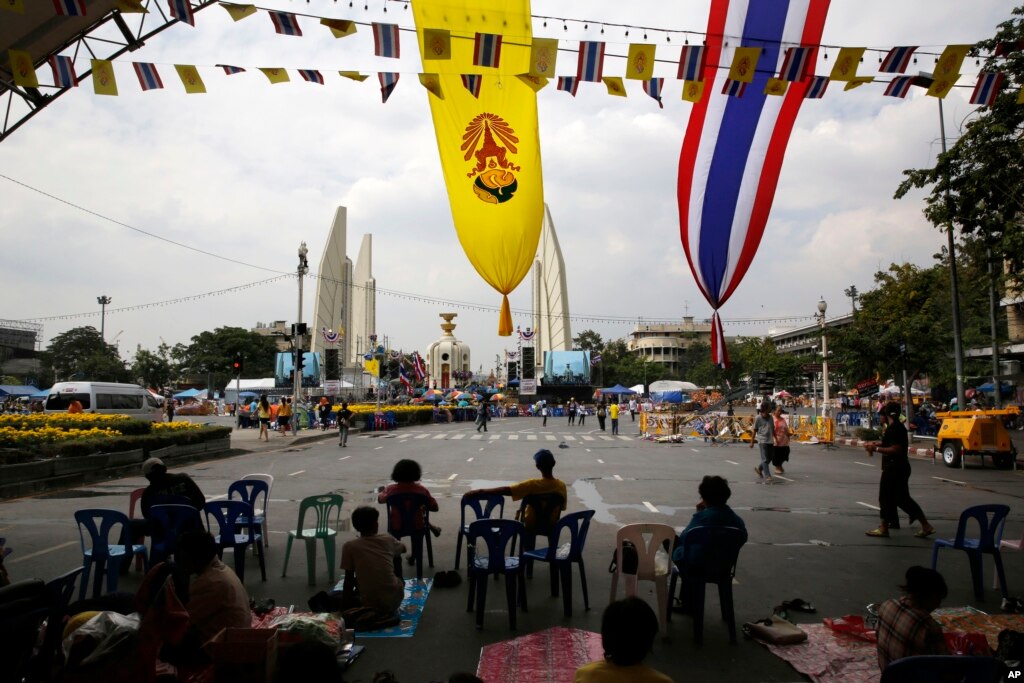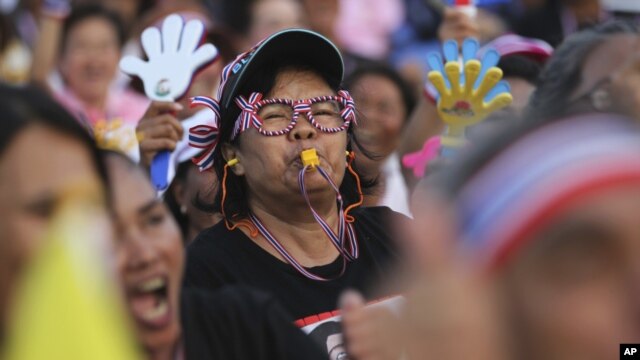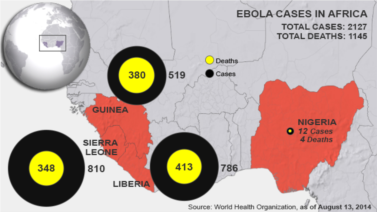
From VOA Learning English, welcome to As It Is. I’m Steve Ember.
Today we tell about how continuing disputes between protesters and government supporters in Thailand may affect the country’s travel industry.
Then we turn to Pakistan to hear about a film that has brought new life to the country’s movie industry. But critics say it may add to existing tensions with Pakistan’s neighbor, India.
Our first stop today is Thailand’s capital, Bangkok. Business groups are raising concerns about recent protests in the city. They say the political tensions could cause harm to the economy. VOA’s reporter in Bangkok says Thailand’s travel industry is already feeling the effects of the unrest – just before the normally busy Christmas holiday season.

Thailand’s banks and business groups are calling on protesters and Thai government supporters to stop demonstrating and negotiate a settlement. Some business organizations are even offering to negotiate to avoid possible long-term economic damage. The credit ratings agency Moody’s Investor Service agrees that investments could suffer if the tensions continue.
Thailand’s economic growth has decreased to less than three percent from better than five percent earlier. A World Bank report said a lack of export growth slowed the economy. Business and capital spending have slowed. And, industry studies show that businesses have growing negative feelings about the country’s financial climate.
Supavud Saicheua is managing director of the investment house Phatra Securities. He says foreigners are being more careful about investing in Thailand. “It all looked fairly normal up to the 31of October – and then November was a whole different ballgame. Lots of investors have basically stopped to think and stopped to watch. They haven’t said that they’re going to cancel their projects. But they’re saying ‘Okay, hold on, let’s see what happens.”
The more cautious climate began when Parliament’s lower house passed an amended amnesty bill. The measure could have let former Prime Minister Thaksin Shinawatra return from exile and not face jail for corruption. Thaksin Shinawatra is the older brother of current Prime Minister Yingluck Shinawatra. He was ousted from power in 2006.
The measure did not go forward. But that fact has not done much to reduce street gatherings and clashes.
Chris Baker is a writer and commentator on Thai politics. Mr. Baker says important business investors from Japan and Korea are less worried by the protests. But, he says that even so, the political conflict in Thailand over the last eight years could have an overall effect on investors’ behavior.
“There is a sort of long term escalation going on which could seriously affect business here, particularly of course if the army has to move in again. People are quite worried.”
In recent weeks, about 30 countries have warned their citizens to be careful about traveling to Thailand. Usually, two million visitors arrive each month. But the travel industry is estimating that about 10 percent of those visitors will cancel their plans.
Thai travel industry operator Luzi Matzig is chief executive officer of Asian Trails Group. He says travel warnings hurt the tourism industry, but so far the effect on the visitor industry is still not major.
But if the demonstrations continue, Mr. Matzig says the travel industry could lose 15 to 20 percent of business next year.
It’s As It Is, coming to you from VOA Learning English. I’m Steve Ember.
New Pakistani film may add to tensions with India...
Now we go to Pakistan, where many people are crowding theaters to see a new movie.

The Pakistani film industry has had few really successful movies in recent years. But the movie “Waar”, or “Attack”, has changed that. It has earned the most money in ticket sales ever for a Pakistani film. Christopher Cruise tells us more.
The movie tells the story of a former military hero who saves Pakistan. Critics say the movie suggests India is the enemy. And they say that suggestion deepens the tensions between Pakistan and its neighbor.
Still, some people praise the film because it is based on true situations in Pakistan -- like the fight against terrorism. At least, that is the opinion of Nawab Hassan Siddique, who made the film available to theaters.
“In the history of Pakistan, there has never been such a huge hit [success], neither by an Indian film nor a Hollywood movie. The credit goes to Pakistan, that a Pakistani picture has earned such huge ticket sales.”
Indian dance films are popular in Pakistan. But the Pakistani film “Waar” is different. Its hero is Major Mujtaba, a former member of the country’s special forces. It shows questioning of suspects with lots of blood.
“Waar” never shows where the enemy is from. But many moviegoers are sure they are from India. And that has caused criticism. Military expert Ayeesha Siddiqa says what some people believe is material condemning India is not helpful. She says that is true because relations between the two countries are already tense.
“You don’t need these bunch of citizens, innocent citizens, thinking the same way. They will end up supporting those radicals.”
Hassan Waqas Rana wrote and produced the film. He says he wanted it to start people talking.
“It’s a film. It’s not the strategic policy of the government of Pakistan. It’s a film that I have written in my own room. I may be 100 percent wrong. I may be 100 percent right. You never know. That’s the whole point of being a filmer.”
Mr. Rana dismisses suggestions that Pakistan’s powerful military helped pay for the film. He admits the army helped with suggestions about military actions and planning to make the film more realistic. But he says he wrote and financed the movie himself.
The great success of “Waar” has led to ten other films being made in Pakistan.
Mr. Rana is now showing his film to movie theatre owners in other countries. I’m Christopher Cruise
And I’m Steve Ember. You are listening to As It Is from VOA Learning English.
And, we remember American Poet Emily Dickinson...

And now we remember a great American poet, Emily Dickinson. She was born in Amherst, Massachusetts on December 10th, 1830.
Only a small amount of her work was published during her lifetime. Most of her poems were recovered after Emily Dickinson’s death in 1886. She had written the poems on small pieces of paper or on the backs of envelopes. They were published over many years.
Some of her best known works are “Hope is the Thing with Feathers”, “We Grow Accustomed to the Dark”, and “A Little East of Jordan.”
Poems are nice, because they rhyme. But here we are, once again, out of time. If it’s news you choose, we have that power VOA News comes at the top of the hour As It Is is a production of VOA Learning English And since English is a hard word to rhyme I’ll simply say: Steve Ember here, See you next time.





